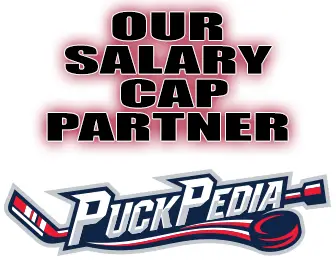Edmonton Oilers
McDavid’s Contract: A One-of-One Situation Or a Pending Problem?
Explore the McDavid contract problem and its impact on future salaries in the NHL. Did he reset the market or stall it?
Connor McDavid’s new two-year, $12.5 million AAV extension with the Edmonton Oilers has sparked a league-wide debate: did the game’s best player just reset the market—or stall it?
Some executives and agents argue that McDavid’s deal, short and relatively modest by superstar standards, could depress future salaries for elite players. Others see it as a total outlier, an arrangement so unique to McDavid’s priorities and Edmonton’s window to win that it can’t reasonably be used as a comparable.
The truth likely lies somewhere in between.
McDavid’s decision wasn’t about squeezing every dollar out of the Oilers; it was about maximizing their flexibility to contend for a Stanley Cup over the next three years. Few can question his motivation. McDavid’s new deal is being called one of the greatest bargains in NHL history. Despite having full leverage to demand a maximum salary, he chose no raise, showing his sole focus is on winning and winning in Edmonton.
He’s the best player in the world, and he could have led the way in terms of salaries, which he may, one day, do. Monday was not that day.
Still, NHL front offices may attempt to weaponize the contract in future negotiations, pointing to McDavid’s example when pushing top players to accept team-friendly numbers—much like Sidney Crosby’s deal once influenced the Penguins and others during their championship years. For other players, the pressure will come from within. Does someone like Jack Eichel look at McDavid and feel a sense of guilt if he forces the Vegas Golden Knights to pay $16 million or more per season? He shouldn’t, but every extra dollar he takes is a dollar the Golden Knights can’t spend elsewhere. All while competing with the Oilers in the same division.

As for why McDavid chose this salary and this particular deal, only he knows why this was the sweet spot. Some theories suggest he’s well aware he’ll get that money back in future deals. Think of it like an unofficial deferred contract. Pierre LeBrun of The Athletic wrote, “As one veteran NHL agent (not McDavid’s) texted me after the signing was made official: “He wants to win at all costs, and he wants to make sure that if they don’t win, he does not want to feel guilty because he took extra money. I understand where he’s coming from. This is a legendary player that has to win the Cup.”
Every other pending UFA and player looking to sign their next deal is in a different situation than McDavid. Again, he is an outlier. No player has the chance to impact his team like McDavid can impact the Oilers and not one of those players is a) on a contending team competing for a Cup or b) hasn’t already won one.
Also unique to the McDavid and Oilers situation is the organizational environment surrounding his deal. McDavid’s short-term deal gives the Oilers about $15 million in extra cap space and puts pressure on them to prove they can build more than a contender, but a championship roster. As one fan said, ‘McDavid just bridged the Oilers.’
With this deal, he can assess the team’s long-term direction before committing again. Few, if any other players, were in that unique situation, because few, if any other players, wield that kind of power.
Whether McDavid’s extension becomes a template or remains an anomaly will depend on how other stars—like Eichel, Kyle Connor, Martin Necas, Adrian Kempe, or others—choose to navigate their next negotiations.
Next: Inside the McDavid Extension: How a Five-Minute Conversation Changed Everything






















